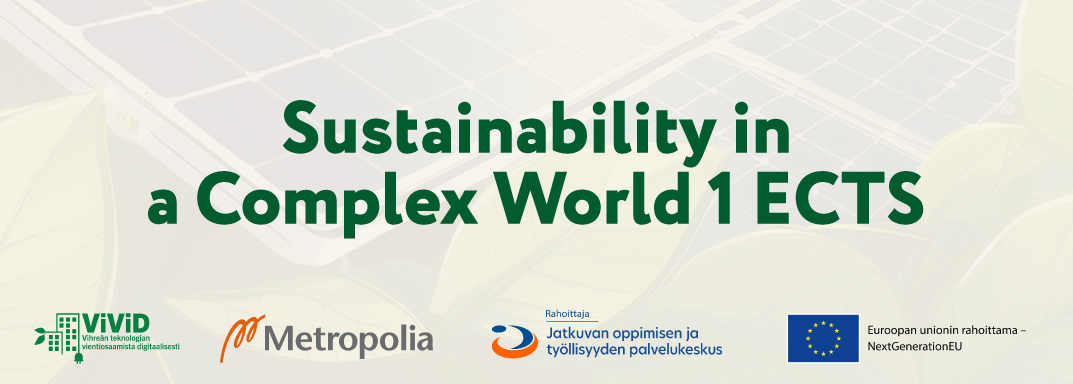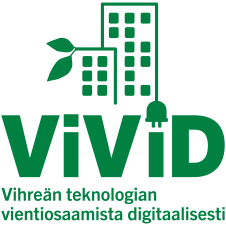
Sustainability in a Complex World is a one-credit online course which introduces learners to the major global sustainability challenges—such as climate change, biodiversity loss, and crises in governance—through the lens of complexity. Using the Cynefin framework, participants will learn to categorise complex issues, explore potential solutions, and consider the ethical and practical hurdles to real-world implementation.
The course is completed independently, in your own pace, as online studies.
Please note that the course is not intended for degree students.
Course Structure and Content
- Understanding Global Sustainability Challenges: Overview of climate change, biodiversity loss, resource depletion, and governance issues.
- Complexity and the Cynefin Framework: Introduction to the Cynefin framework (simple, complicated, complex, chaotic).
- Potential Solutions and Their Hurdles: Overview of technological, social, and policy-oriented solutions.
- Synthesis and Next Steps: Integrating knowledge from previous modules.
Course time period: 5.5. - August 2025
Online course, self paced
Teacher Marko Korkeakoski
Credits 1 ECTS
Learning Outcomes
By the end of the course, participants will be able to:
- Recognise the core global sustainability challenges (e.g. climate change, biodiversity loss, governance crises).
- Apply the Cynefin framework to categorise these challenges and propose context-appropriate strategies.
- Analyse potential solutions, evaluating feasibility and ethical considerations.
- Reflect on how complexity shapes both problems and solutions in sustainability contexts.
Contact
More information about the course via email: vivid [at] metropolia.fi (vivid[at]metropolia[dot]fi)
The course is offered as part of the project Vihreän teknologian vientiosaamista digitaalisesti (ViViD). The ViViD project's goal is to promote technical and economic expertise related to the green transition in Finland's export sectors. The aim is to enhance commercial and technical export business skills in the energy sector by offering short, work-life-oriented online courses.
Vihreän teknologian vientiosaamista digitaalisesti project is funded by the European Union's Recovery and Resilience Facility (RRF), which is the largest program under the EU's recovery instrument (Next Generation EU). The funding has been granted by the Service Centre for Continuous Learning and Employment (SECLE). The Service Centre promotes the development of skills among the working-age population and the availability of a skilled workforce. The activities of the Service Centre are guided by the Ministry of Education and Culture and the Ministry of Economic Affairs and Employment.


